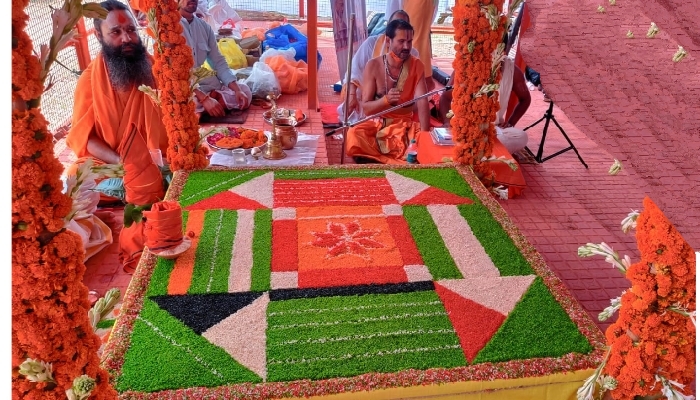New York, Mar 7: Mukesh Ambani's net worth has soared to $40.1 billion, making him the richest Indian for the 11th year in a row, while Amazon founder Jeff Bezos toppled Bill Gates as the world's wealthiest person, says Forbes.
According to Forbes' 2018 'World's Billionaires' list, Reliance Industries Chairman Mukesh Ambani's wealth surged a whopping 72.84% to $40.1 billion (Rs 2,60,622 crore) - highest among the 119 Indian billionaires on the list.
Ambani was ranked 19th globally, up from 33rd position in 2017.
"Mukesh Ambani chairs and runs $51 billion (revenues) oil and gas giant Reliance Industries, among India's most valuable companies," Forbes said.
Bezos, referred to as the "Centi-billionaire", topped the list with a net worth of $112 billion, becoming the only person to appear in the Forbes list with a 12-figure fortune.
"Shares of his e-commerce giant Amazon rose 59% in 12 months, helping boost his fortune by $39.2 billion. It was the biggest one year gain since Forbes started tracking billionaires in 1987," it said.
The Amazon founder moved ahead of Bill Gates, who is now the second richest person globally with a fortune of $90 billion.
According to Forbes, India is home to 119 billionaires, 18 more than last year.
This year's list consists of 2,043 of the richest people in the world.
The combined net worth of this elite group is a whopping $9.1 trillion, up 18% since last year. Their average net worth is a record $4.1 billion.
Azim Premji is the second richest Indian and was ranked 58th on the overall list with a net worth of $18.8 billion, followed by Lakshmi Mittal (62nd position, net worth of $18.5 billion), Shiv Nadar (98th, $14.6 billion) and Dilip Shanghvi (115th, $12.8 billion).
The 10 richest Indians include Kumar Birla, ranked 127th overall with a fortune of $11.8 billion, Uday Kotak (143, $ 10.7 billion), Radhakishan Damani (151, $10 billion), Gautam Adani (154, $ 9.7 billion) and Cyrus Poonawalla (170, $9.1 billion).
Acharya Balkrishna, the co-founder of FMCG company Patanjali Ayurved, was ranked 274th on the list with a net worth of $6.3 billion.
"Acharya Balkrishna derives his fortune from fast-growing consumer goods giant Patanjali Ayurved. Balkrishna owns 98.6% of the privately-held company, which he cofounded with politically well-connected yoga guru Baba Ramdev," Forbes said.
Meanwhile, Anil Ambani, the younger sibling of Mukesh Ambani was ranked 887th on the list with a net worth of $2.7 billion.
Indian jeweller Nirav Modi is among the drop-offs from the list, along with Papa John's Pizza founder John Schnatter, Christoffel Wiese of South Africa, and Saudi Arabia's Prince Alwaleed Bin Talal Al Saud.
Donald Trump, who became the first billionaire president in US history in January 2017, was ranked 766th on the list, down from 544, with a fortune of $3.1 billion.
Trump's fortune fell $400 million since March 2017.
There were 259 newcomers, including the first ever cryptocurrency billionaires, while 121 dropped out due to falling fortunes or political headwinds, including 10 Saudi Arabians.
Forbes further noted that the gap between the really rich and the merely rich continues to widen, as fortunes soar to new heights so much so that the 20 richest people on the planet are worth a staggering $1.2 trillion, a sum roughly equivalent to the annual economic output of Mexico.
"In aggregate, they may represent less than 1% of total billionaires but their riches amount to 13% of the total fortune of all billionaires worldwide," Forbes said.
The Forbes Worlds Billionaires list is a snapshot of wealth using stock prices and exchange rates from February 9, 2018.






Comments
ACHE DIN ....ATLEAST FOR AMBANI/ADANI
Add new comment